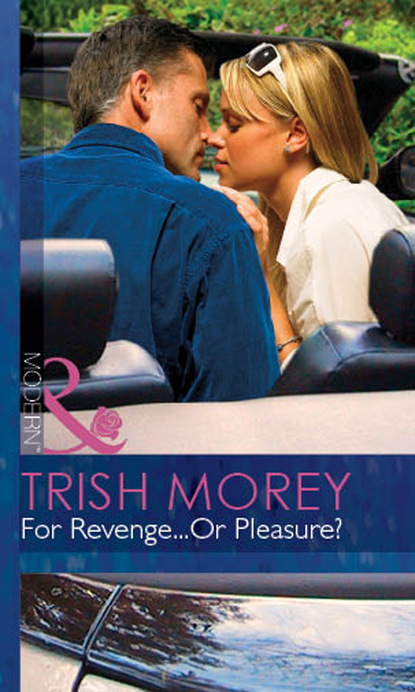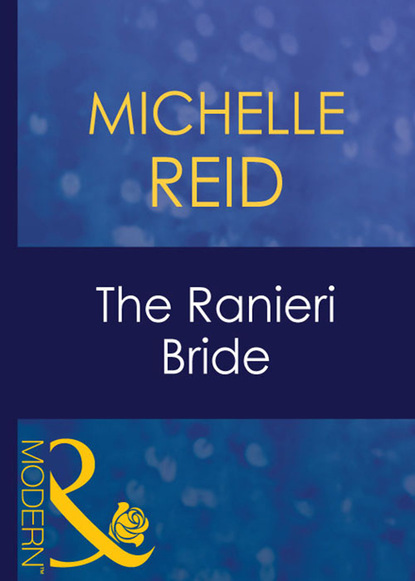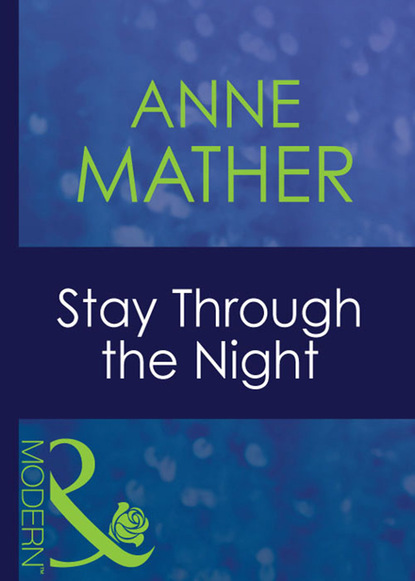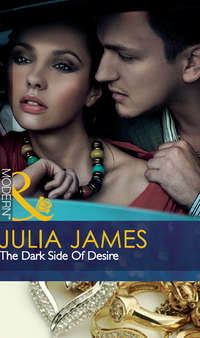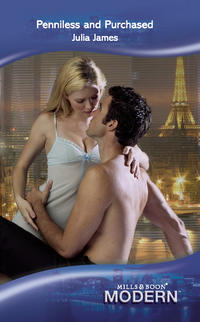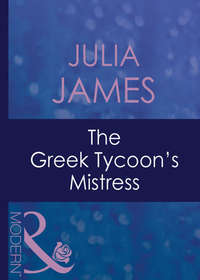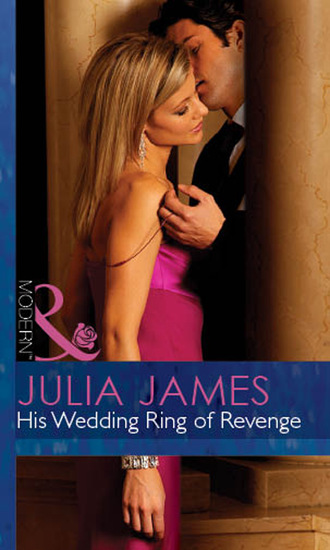
Полная версия
His Wedding Ring Of Revenge
Instead, he merely continued sitting there, quite motionless.
Surveying her.
Rachel Vaile.
Crawling out of the woodwork after seven years.
Although in an outfit like that she wouldn’t be soiling her knees or laddering her stockings by crawling anywhere.
His eyes took in every detail.
The hair, the suit, the nails, the accessories.
He ran up a price tag for the total look.
Five hundred pounds? Easily—another few hundred if you added the shoes and the handbag.
Where was she getting the money from?
The answer knifed through his head, making the question obsolete.
Other men.
Well… He eased the sudden, inexplicable tensing of his shoulders as the answer formed in his mind. She certainly had the right genes for it.
A family profession…
He went on surveying her.
Not that she needed the family link to trade on. Her looks had matured at last. She was, he thought dispassionately, at the very peak of her physical appeal now. And she certainly knew how to package herself.
The knifeblade went through him again, but he ignored it. It was as incomprehensible as it was irrelevant.
He went back to studying her physical appeal.
She didn’t flaunt that racehorse leanness, that ash-blonde fall of hair, those wide, haunting eyes and the tender mouth…
No!
A blade sliced down over his mind.
Fine. She looked superb. Resplendent. Fantastic.
So what? Now move on. Her looks had nothing to do with him.
Nothing about Rachel Vaile had anything to do with him.
They never had and they never would.
Only one thing about Rachel Vaile was of any concern to him.
The price she was intending to exact.
Sitting back calmly in his chair, he merely allowed the sweep of his lashes to lower minutely over his eyes.
‘And your price is—?’
There was contempt in his voice. He didn’t even bother to hide it.
Did something move in her face? He couldn’t tell. But she answered in the same voice as she had first spoken. ‘I didn’t say “price”. I said “conditions”.’
That spurt of rage iced through him again. She had the insolence to come here, forcing his hand like this—
Because she was forcing it, all right! For three years—three years—he had tried by every means he could to get back what was his—his! His lawyers had been useless. Imbeciles! A gift, they had told him, was a gift. It conferred legal title on the recipient. And his father had, after all, given his mistress many gifts. Valuable ones. Expensive ones. Including jewellery…
Vito had cut off their prating with an oath.
‘Dio mio, do you seriously mean to compare the trashy baubles he gave his whore with the piece she stole from him?’
His lawyers had looked even more spineless and useless.
‘It would be difficult to assert that she did so in a court of law, Signor Farneste,’ one of them had ventured uneasily.
Vito had rounded on him mercilessly. ‘Cretino! Of course she stole it! My father was no fool! He didn’t even give her the villa! Why the hell would he have given her something worth even more?’
‘Perhaps as a token of…ah…appreciation…er…instead of the…ah…villa?’
Vito had stilled. A closed, deadly look had come over his face. In a soft, lethal voice that had made the lawyer step back automatically, he had said. ‘You think so, do you? Tell me, what man gives his mistress his wife’s wedding present? What man gives his whore the Farneste emeralds?’
The Farneste emeralds.
Rachel could still see them now. It had been nine months ago. Her mother had insisted on Rachel accompanying her to the bank. Demanded she go into a little room, set aside, where a bank official had brought a sealed parcel to them and placed it on a table, together with a form. They had been left alone, and her mother had pulled off the restraining string around the boxlike parcel, unwrapping the brown paper to reveal a jewel box. Not a very grand one, just one that opened up, revealing a shallow upper layer and a deeper one beneath. Her mother had only glanced at the top layer, lifting it up out of the way to expose the lower one.
And Rachel had gasped. She hadn’t been able to help it.
A river of green fire had flashed in the light. Her mother had lifted it out and sat back. A look had settled on her face. An expression of extreme satisfaction. She’d let the jewels flow through her hands and given a deep, contented sigh.
‘It’s incredible!’ Rachel breathed.
Her mother smiled.
‘Yes,’ she said. ‘And it’s mine.’
There was a strange note in her voice. Not just pleasure at owning such a treasure. More than that. And Rachel recognised what it was.
Triumph.
A sense of foreboding started to sound in her.
‘The Farneste emeralds,’ said her mother. ‘And they’re mine.’
Then a strange, haunted expression came into her eyes.
She looked at Rachel.
‘They’ll be yours. Your inheritance.’
Vito leant back in his chair behind the vast desk that befitted the chairman and chief executive of Farneste Industriale. The company was only three generations old, but the Farneste family went back a lot further than that. The Farnestes had been merchant princes at the time of the Renaissance, and though the family’s fortunes had fluctuated wildly over the intervening centuries, now, thanks to Enrico’s shrewd, hard and brilliant brain—a throwback to his Quattrocento ancestor—the Farneste fortune was riding high again. Vito’s task was merely to steer Farneste Industriale into the expanding global economy of the twenty-first century.
But though the Farnestes looked forward, Vito had not forgotten the past. The ancient past—which had brought the Farneste emeralds into existence in the eighteenth century—and the recent past—which had scarred his youth.
Thanks to Arlene Graham’s poisonous presence in his father’s life.
A poison he had not yet quite drawn. The very last drop of that vicious venom had yet to be extracted.
And Arlene’s daughter was here, offering him the chance to draw it.
‘Conditions?’ he said expressionlessly. ‘By this you mean exemption from prosecution for theft.’
Vito’s voice was flat. Unarguable.
Rachel shifted her weight slightly. The tension in her spine was making her back ache.
But when she replied her voice was as flat as his.
‘Had there been justification for prosecution you would have gone ahead years ago,’ she replied. ‘The conditions I require to be met are quite different.’
She watched Vito’s face for his reaction. There was none. Not even anger at being reminded of how completely impotent he was to use the force of the law to return what he considered his. He would have done so if he could. She knew that. Without the slightest hesitation Vito Farneste would have used the full force of the law to regain his possessions.
After all—her eyes shadowed—he had done it once already.
What Vito Farneste wanted, Vito Farneste got.
He made sure of it.
Whatever it was and whoever it was.
For whatever reason.
She stared at him. Stared at the man who sat there, who had nearly—so very, very nearly—destroyed her.
I was young. I was stupid. I was gullible.
She was none of those things now.
And Vito Farneste meant nothing to her. Just as she meant nothing to him. Had always meant nothing to him.
Now, only one person meant anything to her. It had come very late, but it had come. And it was for that reason she was here, standing in front of Vito Farneste, offering him the one thing he wanted from her—the only thing of any value to him.
But you were never of value to him—never! Not once, at any time! You were nothing more than a fool, to be used.
His eyes were dark, so very dark. Like the night.
For a second so brief she wanted to believe she had only imagined it, a pain went through her that was searing, agony.
For I have sworn thee fair, and thought thee bright
Who art as black as hell, as dark as night…
The lines from Shakespeare’s bitter sonnet tore at her.
With a strength she pulled out of grief, she forced her mind away.
Vito Farneste wanted different things now from what he had wanted once, when she had been that young, stupid, gullible fool. Now what he wanted was in her possession.
But, unlike the last thing he had wanted from her, this time she would extract something in return.
Not money. Money was no use to her.
What she wanted was something quite, quite different.
Vito’s eyes had narrowed. But they remained utterly without expression. She matched hers to his.
‘Well?’ he demanded.
His gaze bored into hers.
She felt them do so as if they were a physical force, drilling through her. She took a breath—quick and sharp and shallow.
‘It’s very simple,’ she told him. ‘I want you to marry me.’
For a second there was total and absolute silence. Then, like the lash of a whip, he started to laugh.
It cut the flesh from her bones, flayed the skin from her body.
Scornful, contemptuous laughter.
She watched his head thrown back, his mouth widen, indenting lines from his nose to the edges of his lips.
Then he cut the laughter short.
With dark, poisonous venom in his eyes he leant forward.
‘In your dreams,’ he sneered.
His mocking voice sheered through her. Forcing her to acknowledge the truth of what he said.
Once, marrying Vito Farneste would have been a dream come true.
But that was in another lifetime. When she had been a different person.
Yes, so naïve I should have had a warning sign on me!
But there had been no warning. No warning of just how mortally dangerous Vito Farneste could be to her.
After that first, horrible encounter by the pool, when she was fourteen, she’d never thought she would see him again. Her mother, arriving back after a long lunch with Enrico, had been furious to discover Vito had turned up at the villa. Vito’s father hadn’t seemed pleased either.
Rachel had stayed down by the pool even after she’d heard the car arriving and assumed it was her mother and Enrico coming back. But she hadn’t been able to block out the angry exchange of deep voices echoing down from the house, culminating in the throaty roar of that red beast tearing away up the precipitous coast road. After a while her mother had come in search of her, clipping down the steps in high heels and looking tense and distracted. There had been two spots of colour on her cheeks, visible beneath the perfect make-up she wore. At thirty-four her mother could easily have passed for a woman nearly ten years younger, but today she showed her age.
‘Are you all right, Mum?’ Rachel had been moved to ask.
Her mother had given an impatient sound in her throat. ‘Vito has been here, spreading his usual discord! Enrico is angry, naturally, and that just makes for a difficult situation.’
‘Who’s Vito?’ Rachel asked, though she was pretty sure she knew just who her mother was referring to.
‘Enrico’s son. He’s driven here, quite unnecessarily, to inform his father that his mother has taken off for her mountain chalet with one of her so-called nervous attacks! Does Vito seriously think Enrico is going to rush after her? He’s only been here two days—that boy has absolutely no idea how hard his father works!’ Her mouth tightened. ‘The only thing Vito knows is how to spend money and live the dolce vita in Rome! The original Latin playboy!’ Her eyes suddenly sharpened. ‘Did you see him?’ she demanded. ‘Before Enrico and I came back?’
To her chagrin, Rachel felt the colour flush through her face.
‘He…he walked past the pool,’ she confessed, in a mumbled voice.
Her mother’s face hardened. ‘Well, at least he won’t be back now. He’s gone off to hold his mother’s perpetually swooning hand. It’s quite ridiculous the fuss he makes over her!’
Was that defensiveness in her mother’s voice, or just accusation? Rachel wondered. Whichever it was, it just made her long to be a million miles away.
She remained of that opinion for the rest of her stay at the villa. She did her very best to stay out of the way, heading down to the tiny private beach below the villa to swim in the sea, or sunbathing by the pool with a book.
Her mother and Enrico seemed to spend most of their time out and about, and she was glad. She felt no easier in Enrico’s company than in her mother’s. He seemed to be a remote figure, middle-aged and heavily built, someone around whom the whole household revolved—including, primarily, her mother.
Rachel hated seeing them together. Up till now she had accepted their relationship. It had lasted over six years, ever since Enrico Farneste, attending a conference in Brighton, had walked into the expensive boutique her mother ran in the fashionable Lanes to buy something for his current mistress and decided that Arlene Graham would make him a much better one. Rachel had been packed off, first to her mother’s elderly widowed aunt and then to an expensive boarding-school, to get her out of the way, and her mother had been whisked off to Italy.
Rachel had known her mother had become the mistress of Enrico Farneste, head of the giant Farneste Industriale. That it was his luxurious villa she lived in, his yacht she took her holidays on, his gilded world she moved in. And she had known, too, that it was thanks to Enrico Farneste that she went to her exclusive boarding-school, that Auntie Jean now lived in a nice bungalow outside Brighton, not a council flat, and that when she stayed with her mother in London it was Enrico Farneste who ended up paying for the hotel, and supplying the money her mother spent.
Her mother was untroubled by the irregularity of the liaison.
‘On the Continent these things are understood,’ she had told Rachel, in her crisp voice. Her vowels had completely lost their flattened, lower-class origins, and her spoken English now was almost as good as her expensively educated daughter’s. ‘In a Catholic country a wife can never be divorced, so men have no choice but to stay married. It’s a perfectly acceptable arrangement, and no one thinks anything of it. Just as no one,’ she added offhandedly, ‘thinks anything of the fact that your father and I were not married.’
She had sounded so convincing that Rachel had believed her.
Until Enrico’s son had ripped that illusion from her with a handful of casually vicious words. As ugly as they were true.
Surely to God that should have been warning enough?
But it hadn’t been.
The ugliness of the words had not been enough to make her forget the beauty of the man who had delivered them. From that day onwards Rachel had hidden a shameful secret—that in her adolescent heart every male who ever came her way, whether real or on screen, was compared to Vito Farneste. Even as the years passed, and the routine of school dominated, still, in the dark recesses of her secret mind, she knew she could never expunge the image, burnt on her retina by the bright Italian sun, of that figure walking down the steps with lithe, leashed grace, like a dark, beautiful young god.
She had told no one—Vito Farneste had remained a secret sin.
It was one she was to pay for bitterly.
Was still paying for. In dreams that had turned into a nightmare.
A nightmare that was the dark, deadly sting of Vito Farneste’s eyes as she told him her conditions for relinquishing the Farneste emeralds.
He sat back in his chair.
‘Get real,’ he said, his voice soft. Soft as blood.
Rachel could feel the scorn, the derision, lashing out at her like the fine, cruel tip of a whip across the broad desk. She saw him reach out a long-fingered hand and pull open one of the drawers of the desk, take out a leather cheque-book case. He flicked it open, and picked up a gold pen, sliding off the top and holding it over a cheque.
‘Cash,’ he said. ‘That’s the currency for women like you and your mother. Hard cash.’ His eyes narrowed, and Rachel could feel the leashed fury lashing within. ‘But don’t even think of trying to bleed me. You can have a million euros in exchange for the emeralds. Not a cent more. Take it or leave it.’
He was starting to write. Assured, decisive, the black ink flowing smoothly across the blank spaces of the cheque.
‘No sale.’
Rachel’s voice was controlled. Very controlled. It had to be.
Vito didn’t even pause in writing, just went on, scrawling ‘one million euros’ in the required space.
‘You didn’t hear me, did you?’ Rachel said. Was her voice less controlled? No—she would not allow it to be. Must not allow it. Too much depended on her keeping her control total. Absolute. Unbreakable.
Vito glanced up, his look corrosive. ‘I heard you make a joke in such poor taste I would not have thought even you could stoop so low.’
He went back to completing the cheque, signing it with his dark, flowing hand. He tore the page from the cheque-book and pushed it across the desk towards her.
‘I’ve dated it three days from today. Bring me the emeralds tomorrow, and then you can cash the cheque.’
She didn’t even look at it. Instead, in a tight, rigid voice, she said, ‘It was no joke. If you want the emeralds back, you marry me. That’s all. Take it or leave it.’
She could not resist throwing back his own words to her. It helped, however minutely, to ease by a fraction the tension racking her so tightly she thought she might snap at any moment.
Vito set down his pen. It was a slow, deliberate movement. Then, in a movement equally slow, equally deliberate, he leaned forward again.
‘I would rather,’ he spelt out, his voice low, lethal, ‘take a toad as a wife than you.’
His eyes rested on her. Dark. Deriding.
A dull stain of colour seeped out along her cheekbones.
‘I’m not suggesting a real marriage.’ She tried to inject scorn into her voice, but it didn’t seem to come out that way. She could feel the colour spreading now, staining her cheeks. ‘I simply want your ring on my finger for a limited duration.’
A pang struck her, stabbing with a pain she should have got accustomed to but hadn’t. Couldn’t.
‘Six months—no longer.’
The tightness in her voice was unbearable, crushing her larynx so she could hardly speak. The pain stabbed at her again.
She tried to stare him down, match his cold, levelling gaze with one of her own.
‘I have already given you my answer. Do you add selective hearing to all your other…flaws?’ was Vito’s response. ‘Including, of course, stupidity. Do you imagine I would ever, under any circumstances, marry you?’
Her face was so tense it ached, all the way across her jaw, up through the bones in her skull. Her spine was stiff with the strain of holding herself upright.
‘I know what you think of me, Vito— I don’t need it spelt out.’
A slashing, hostile smile flashed across his face. Utterly devoid of humour.
‘Then, if you know that, even more do I question your sanity in coming here like this. Daring to try and sell back to me what was never your bitch of a mother’s to take!’
Emotion—deep, agonised—twisted in Rachel’s face.
‘Don’t speak of her like that!’ Her words spat at him.
Vito’s face darkened, as if night had closed over him.
‘Your mother got her greedy, grasping claws into my father and wouldn’t let go! She made my mother’s life a non-stop misery!’
His words, his voice, cut at her like a knife. Rachel closed her eyes against it. How could she deny what he had said? How could she argue back against what he had thrown at her? And yet to hear her mother spoken of in such terms gutted her. A vision of how she had last seen Arlene seared into her mind, and she had to open her eyes again to banish it. But she could not banish the shaft of anguish that went with the vision.
She raised her hand in a sharp, sweeping movement, as if to brush away the feelings ripping through her.
With monumental effort she fought back to take control of her emotions, to keep this conversation where it had to be—at the level of business, nothing more. Where Vito Farneste would gain something he wanted and so would she.
‘This is irrelevant,’ she said dismissively. ‘The sole issue is whether you want the Farneste emeralds back again—on the terms I’ve just set out. I want your ring on my finger. For no more than a few months—’ she fought to keep her voice steady as she spoke ‘—and that’s all. You can have your precious emeralds back on our wedding day. No cash will be necessary.’
She bit out the final sentence.
Vito stared at her. His expression was veiled. And suddenly the way he was looking at her was far, far worse than when his eyes had been dark with fury, his face cold with disgust.
She felt her heart start to quicken, her stomach plunge as though she’d just swallowed an ice-cube.
‘Why?’ he asked quietly, but there was no softness in his voice, just a low, disturbing shimmer of menace. ‘Why?’ he asked again.
His shoulders eased into the soft leather curve of his executive chair and it swung slightly at the redistribution of weight. His eyes never left her face.
She shifted uneasily. What was going on? Why was he looking at her like that?
She tightened her jaw.
‘Why what? Why don’t I want money for the emeralds?’
‘No. Why do you imagine that I would entertain, even for a nanosecond, your…proposal?’
His voice was still quiet, but it withered the flesh on her body.
‘Because,’ she answered, through gritted teeth, ‘you want the emeralds back. And this is the only way you’re going to get them.’
Something flashed in his eyes. In a single fluid movement he was on his feet.
His hand flew up.
‘Basta! This idiocy has gone far enough! I am prepared to buy back the emeralds in cash—but I am not prepared to have my time wasted a second longer with this farce! So either take the cheque or get out!’
She was reeling from the force of his anger. Her fingers dug into the soft leather of her handbag.
‘If I walk now you’ll never get your precious emeralds back!’
She tried to hurl her words at him, but they came out shaking.
‘Never is a long time,’ he retorted caustically. ‘At some point you’ll sell them—just to realise their value. And if you don’t sell them to me, what do I care? I’ll buy them from whoever you sell them to.’
‘My mother will never sell them!’ An image of the way Arlene had let the green jewels run through her fingers, gloating with triumph over her possession of them, shot through her mind. ‘Never!’
‘Then you can bury them in her grave with her!’
Rachel’s face whitened, draining of blood. Faintness drummed in her ears.
‘You bastard,’ she whispered.
His face stayed unrelenting, like unyielding marble. ‘No—that’s you. Remember?’
It finished her. Finished her totally.
Numb, she turned on her heel, walking back towards the closed double doors that seemed suddenly to be a hundred metres away. The urge to run, to get out, was overwhelming. Only at the door did she find one last vestige of courage. She took the handle, steadying herself.
Then she turned. Her face was totally blank.
‘May you rot in hell, Vito Farneste!’
She swung back, yanking open the double doors, and walked out. She just made it inside the lift before her legs all but buckled beneath her, and she had to sag against the bronzed wall for support.
As the lift plunged downwards, so did her heart.
She had blown it. Totally blown it. Her wild, stupid, insane idea had failed utterly, miserably.
Despair filled her, and in its wake the floodgates to grief opened yet again, drowning her.
In his office, Vito stood for one long, last moment, his face rigid. Fury so overwhelming he thought it would burst through tore at him, but he leashed it tight, with rigid control.




